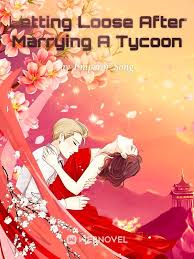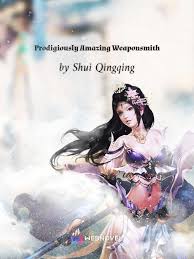The Story in 3 Sentences
Keeley Hale, a seemingly ordinary young woman, marries Aaron—the wealthy, cold-hearted tycoon of New York—believing she’s found her happy ending, only to suffer betrayal, heartbreak, and death in her first life .
Reborn with full memories of her tragic past, she resolves to avoid Aaron at all costs, determined to rewrite her fate and protect her heart from the man who once destroyed it .
But as their paths inevitably cross again, old wounds, hidden truths, and new alliances force both to confront whether love can survive second chances or if some destinies are too poisoned to heal .
Why It Stands Out
1. Time-Looped Heartbreak with Emotional Precision
Unlike typical rebirth romances that rely on revenge tropes, “Run, Girl (If You Can)” centers on emotional recalibration—Keeley isn’t out for vengeance but for self-preservation, making her internal conflict far more nuanced and relatable than standard redemption arcs.
2. The Tycoon Isn’t Just Cold—He’s Complicated
Aaron defies the one-dimensional billionaire stereotype; his emotional detachment stems from layered trauma and miscommunication, not mere arrogance, allowing the story to explore how love falters not from malice but from silence and pride .
3. Supporting Cast with Real Stakes
The novel elevates its drama through secondary characters who aren’t just foils but fully realized individuals with their own desires, betrayals, and growth, turning what could be a simple love triangle into a web of intersecting loyalties and regrets .
Characters That Leave a Mark
There’s Cameron – the loyal confidant whose quiet strength and unwavering support offer Keeley a sanctuary far removed from the chaos of her past, embodying steadfast friendship without romantic overtones .
You’ll meet Jenica, who navigates her own turbulent relationships with sharp wit and vulnerability, serving as both comic relief and emotional anchor during Keeley’s darkest moments .
And Aiden? They’re the one who blurs the line between ally and rival, using charm and unpredictability to challenge Aaron’s dominance while harboring secrets that could upend everything .
The Flaws Fans Debate
Some readers find Keeley’s repeated avoidance of communication frustrating, arguing that her trauma response sometimes stalls plot momentum rather than deepening it.
Critics note that while Aaron’s redemption is compelling, his early cruelty—especially around Keeley’s pregnancy and death—can feel inadequately atoned for, leaving emotional dissonance in the reconciliation arc.
A segment of the fanbase feels the rebirth mechanic is underutilized; instead of exploring alternate timelines or strategic changes, the narrative often reverts to emotional repetition rather than true divergence.
Must-Experience Arcs
Ch. 1–60: The First Life Collapse – Keeley’s initial marriage to Aaron unravels through gaslighting, infidelity, and societal pressure, culminating in her tragic death and setting the foundation for her rebirth with haunting clarity.
Ch. 180–250: The Silent War – After rebirth, Keeley builds a new life in academia while Aaron, now aware of her changed demeanor, begins a slow, obsessive pursuit masked as concern, leading to tense confrontations and buried confessions.
Ch. 480–547: Two Lifetimes Reconciled – With past betrayals fully exposed and new threats emerging, Keeley and Aaron must choose between permanent separation or forging a fragile trust that acknowledges their shared pain without erasing it .
Killer Quotes
“Run, girl, if you can—but I won’t let you because you belong to me no matter what”
“Remembering her life with Aaron before she died, she makes a promise to herself that she will do everything in her power to avoid him at all costs”
“Do I need a reason to spoil you?”
Cultural Impact
Fans frequently reference the “two lifetimes” trope from this novel when discussing rebirth romance done with emotional realism rather than fantasy escapism.
The line “Run, girl, if you can” became a meme template on Webnovel forums, used to caption scenarios where someone tries to escape emotional entanglement but is inevitably pulled back.
Readers praised the novel’s balance of tragedy and hope, with many calling it a “healing read” despite its heavy themes, contributing to its consistent presence in Webnovel’s top drama rankings .
Final Verdict
Start Here If You Want:
A rebirth romance that prioritizes psychological realism over fantasy power fantasies.
A love story where both leads are deeply flawed yet achingly human, making their reconciliation feel earned, not convenient.
Drama that weaves class, grief, and identity into its romantic core without losing narrative pace or emotional intimacy.
Study If You Love:
Narratives that deconstruct the “cold tycoon” archetype by exposing the vulnerability beneath performative masculinity.
Stories where female agency isn’t about dominance but about the quiet courage to walk away—and the even harder choice to stay.
Webnovels that use reincarnation not as a reset button but as a lens to examine how memory shapes desire and fear.
Avoid If You Prefer:
Fast-paced action or supernatural elements; this is an intimate, dialogue-driven character study wrapped in modern fantasy.
Clear-cut villains; moral ambiguity drives the conflict, and redemption is messy, not triumphant.
Stories where the heroine immediately forgives betrayal; Keeley’s journey is defined by resistance, not compliance, which may frustrate readers seeking swift romantic resolution.





